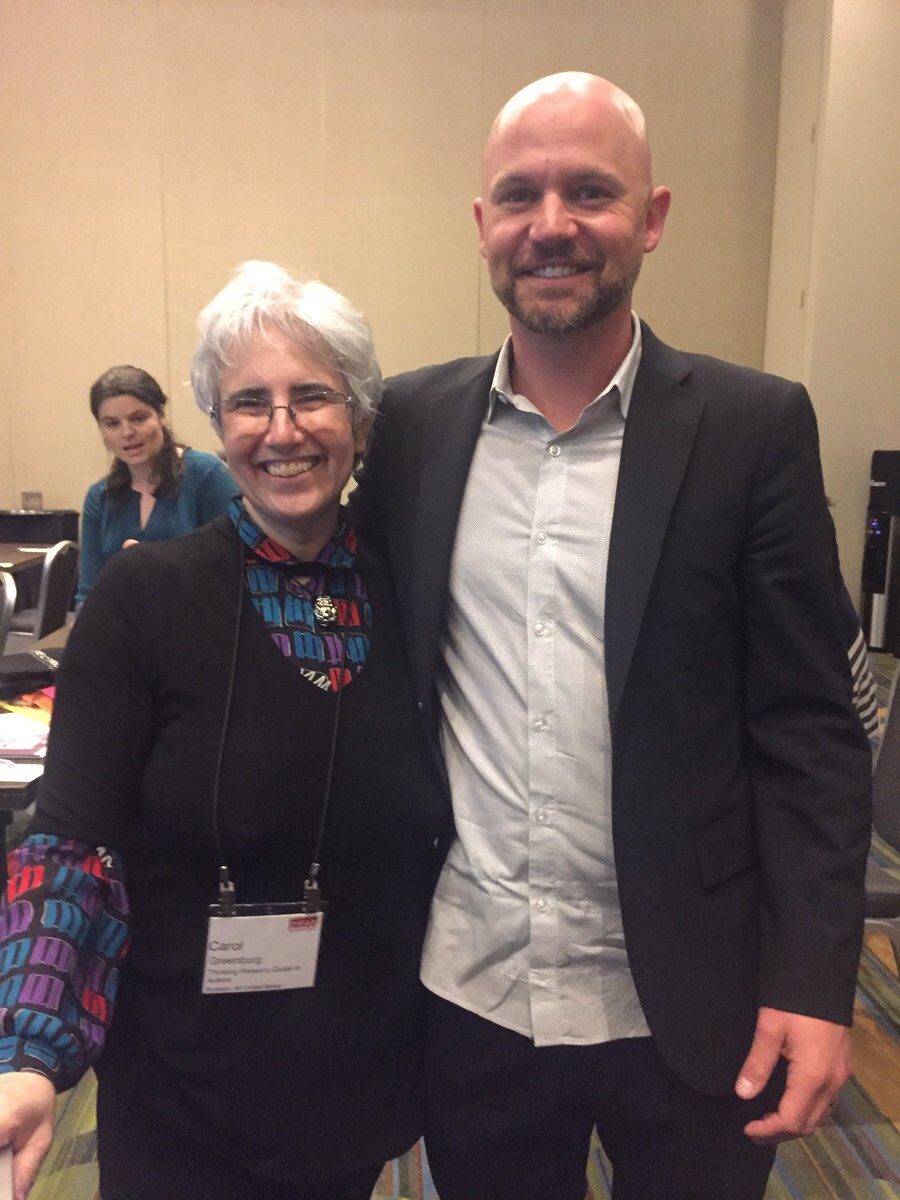Shannon Rosa from Thinking Person’s Guide to Autism and Corina Becker from Autism Women’s Network interviewed Laura Crane from CRAE, the UK-based Centre for Research in Autism and Education about her work in supporting best practices in health care and education for autistic people, and also demonstrating that Autistics, children specifically, can be reliable witnesses during criminal investigations. Laura Crane | Photo: CRAE [image: Smiling white woman with long brown hair.] Shannon Rosa: Why don’t you start by telling us a little bit about the work that you’re doing for CRAE, because it seems like you’re involved in so many things. Laura Crane: My research focuses on two main areas. The first is looking at how we can support autistic children and adults within the criminal and family justice systems. A lot of that work has come from police officers and barristers and other legal professionals assuming that autistic children and…
Tag: INSAR
Carol Greenburg and Matthew Goodwin at the IMFAR 2017 Press Conference [image: White woman with short platinum hair and glasses posing with a taller white man with a shaved head and goatee.] Northeastern University researcher Matthew Goodwin gave an IMFAR 2017 keynote speech about his work on “Wearable Sensor-Based Physiological and Physical Activity Biomarkers for Use in Laboratory and Naturalistic Environments to Assess Arousal and Repetitive Motor Movements in Individuals with Autism Spectrum Disorder.” Thinking Person’s Guide to Autism’s Carol Greenburg and Shannon Rosa, and Autism Women’s Network’s Corina Becker, spoke to Goodwin after the IMFAR press conference, about the real-life applications of his work, and how they can benefit autistic people. Carol Greenburg: What constitutes a behavior, insofar as it’s something that needs to be mitigated? A behavior like flapping or other “stims” may mean something different to the person who’s doing the intervention, as opposed to the autistic person themselves.…
IMFAR 2017: Mental Health Crises in Youth with Autism Spectrum Disorder Storify by Shannon Rosa Sat, May 13 2017 21:08:54 Edit IMFAR 2017: Mental Health Crises in Youth with Autism Spectrum Disorder Clinical experience suggests such crises occur frequently among individuals with an Autism Spectrum Disorder (ASD). Despite the scope and impact of this issue, there is no systematic research on the measurement or management of mental health crises in individuals with ASD. Content note: Discussion of mental health issues, including suicide and other self-harm. ThinkingAutismGuide@thinkingautism Now: Mental Health Crises in #autistic youth. #IMFAR2017 Sat, May 13 2017 17:31:17 ReplyRetweetFavorite First speaker: Session chair L. Kalb: Psychometric Analysis of the Mental Health Crisis Assessment Scale in Youth with Autism Spectrum Disorder AutismWomen’sNetwork@autism_women Psychometric Analysis of the Mental Health Crisis Assessment in [Autistic] Youth #IMFAR2017 Sat, May 13 2017 17:33:36 ReplyRetweetFavorite ThinkingAutismGuide@thinkingautism What = mental health crisis? Settled on APA def:…
Photo © Bobby Wade/Flickr [image: White woman with long brown hair and glasses, giving a presentation at a TEDx autism conference.] Our editors Carol and Shannon are spending the latter half of this week at IMFAR, the International Meeting for Autism Research, which is May 11 – 14 in Baltimore, MD. If you’re going, say hi! You can also follow us on Twitter at @ThinkingAutism, @ShannonRosa, and (Carol) @AspieAdvocate. IMFAR has improved a lot: We are glad to see the annual conference welcome increasing numbers of autistic speakers and attendees, so that autism researchers can listen to the people whose lives they are studying (and ideally trying to benefit), and vice versa. But since our editorial roles include being autism research ethics gadflies, we have to note that IMFAR is still mostly about the medical model view of autism and disability (curing and fixing), rather than the social view (understanding…


